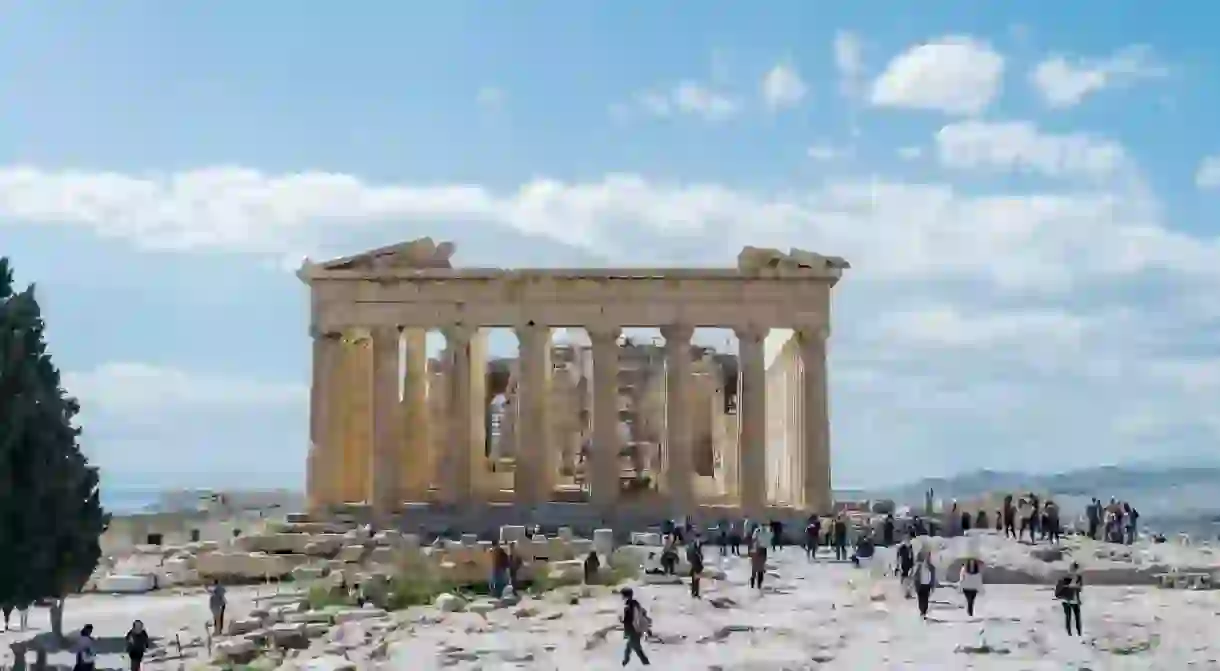Everything You Need To Know To See The Acropolis Properly

A must-visit when in Athens, the Acropolis is a stunning 5th-century BC temple complex situated on a hill. As the site is quite extensive, Culture Trip has set up a small guide on everything you need to know about visiting this historic landmark.
Practical Information
Comprised of several ancient structures, the site of the Acropolis of Athens is accessible via a €20 ticket (reduced to €10 during the off-season: November 1st to March 31st). A €30 ticket is also available and gives access to six other archaeological sites, including the Roman Agora, the Ancient Agora, the Archaeological Museum of Kerameikos, and Hadrian’s Library. The special ticket is reduced to 15 euros during the off-season and is valid for five consecutive days.

The Acropolis is open from 8 a.m. to 5 p.m. every day and also includes days where free admission is available.

The ticket for the Acropolis or the multi-site ticket cannot be purchased online, but there are many ticket kiosks at the entrance of each participating site.

Main Sites To Visit
Parthenon
The Parthenon is a temple dedicated to Athena Parthenos, the patron of the city. As one of the finest monuments on the Acropolis, it was built between 447 and 438 BC. While the Doric temple remained unchanged until the 5th century AD, it was converted into a church, before becoming a mosque under Turkish rule.

Erechtheion
Located on the north side of the Acropolis, the Erechtheion was built in 421-406 BC to replace an earlier temple that was dedicated to Athena Polias. Named after the mythical king of Athens, Erechtheus, who was once worshiped there, it is most famous for the porch on the northern side, which is sustained by six caryatids (draped female figures serving as supporting columns).

Propylaia
The Propylaia, or gates, were built on the western part of the hill, where the gate of a Mycenaean fortification once stood. The first propylon was erected in the age of Peisistratos, after the Acropolis become a sanctuary dedicated to Athena. It was at that point that ‘check-ins’ were made to prevent the unclean from entering the complex.

The Temple of Athena Nike
Located in the southeastern portion of the sacred complex, the Temple of Athena Nike stands tall. This Classical temple, constructed by Kallikrates and built in 426-421 BC, replaced earlier temples also dedicated to Athena Nike.

Old Temple of Athena
The Old Temple of Athena Polias was an archaic monument located between the Erechtheion and the Parthenon. Constructed in the sixth century BC, the temple was destroyed by the Persians in 480 BC.


The Odeon of Herodes Atticus
The Odeon of Herodes Atticus was built in 161 AD by Athenian Herodes Atticus, in memory of his wife, Aspasia Annia Regilla. This ancient stone theater was built at the foot of the Acropolis of Athens. The structure has been restored since it was first discovered, and it now welcomes various cultural events and music performances throughout the year.

The complex of the Acropolis includes several other monuments, including the Brauronion, the Temple of Rome and Augustus, the pedestal of Agrippa, the Beule Gate, an asclepieion, as well as the Chalkotheke and the north and south slopes of the Acropolis.

When To Go
The Acropolis of Athens is closed only a few days every year. During the summer, make sure to visit the site early in the morning; due to its location, there isn’t any shade, and it can get very hot. Also, try to avoid visiting the site when it rains – the rocks become very slippery.



Make sure to admire the various monuments, and take advantage of the location by appreciating the breathtaking view of the city below.















